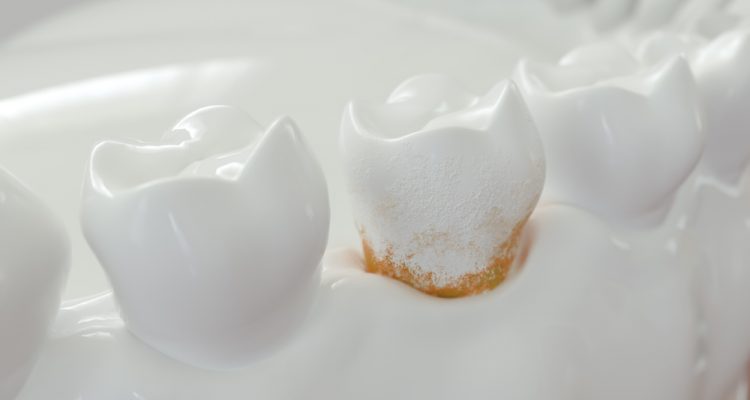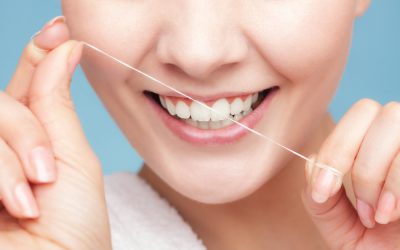Run your tongue over your teeth. If you haven’t brushed them in a while, they may seem slimy or rough. That buildup you feel is dental plaque, a colorless, sticky substance that your body produces naturally. Here, we’ve answered your common questions and how it affects your oral health.
What Is Dental Plaque?
Plaque is a thin, sticky film that sits on your teeth and around your gumline. It contains millions of bacteria. Plaque occurs naturally in your mouth, but it is colorless and usually difficult to see. It becomes more visible when the bacteria feed on sugars from your food and plaque begins building up in white deposits on your teeth and under your gums.
Plaque formation is a natural part of your body’s chemical processes and it’s constantly growing in your mouth. Excessive plaque buildup – caused by not brushing and flossing your teeth daily – can lead to serious oral health problems.
How Does Plaque Form?
Dental plaque develops when we eat and drink – especially when we consume substances with sugars and starches. The bacteria in our mouths feed on the sugars in food and form a sticky film that builds up on the teeth and along the gumline. Bacteria uses the sugars from food and drinks to produce acid, which eats away at tooth enamel. Repeated acid attacks – caused by frequent intake of sugary foods or snacking and sipping multiple snacks throughout the day – eventually wear down the enamel and destroy it.
What Are the Dangers of a Buildup?
Over time, a buildup of plaque on the teeth and at the gum line can lead to tooth decay and gum disease. Denal plaque erodes the protective layer of enamel on teeth, which allows cavities to develop.
Plaque that forms under the gum line causes inflamed, irritated, and painful gums. A mild gum infection is called gingivitis. However, if gingivitis isn’t treated and plaque continues to build up under the gums and along the tooth roots, the infection can progress to periodontitis. Periodontitis is a severe gum infection that can cause bone and tooth loss.
Plaque deposits that aren’t cleaned out of your mouth can harden and become tartar, which can only be removed professionally by your dentist. Tartar buildup increases your risk of developing gum disease.
Aside from cavities and gum disease, plaque buildup can also contribute to bad breath, due to the excess bacteria in your mouth.
How Can I Get Rid of Plaque?
The most effective way to remove plaque from your mouth is to brush and floss your teeth daily. The American Dental Association (ADA) recommends brushing your teeth twice a day for two minutes each time. The ADA also recommends flossing or using another interdental cleaner once a day to remove plaque and food particles between your teeth that your toothbrush can’t reach. There is no substitute for regular brushing and flossing – mouth rinses are ineffective at removing plaque, because it’s a sticky substance.
You can also help prevent dental plaque buildup by eating a balanced diet, limiting your intake of sugars and simple carbohydrates, and limiting frequent snacking between meals.
Visiting your dentist for regular dental exams and professional cleanings is another important way you can prevent the buildup of plaque and tartar in your mouth. You should have at least two professional cleanings a year. Contact Boyett Family Dentistry today to schedule your next appointment.






